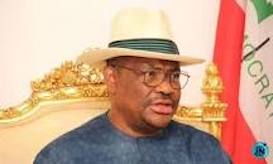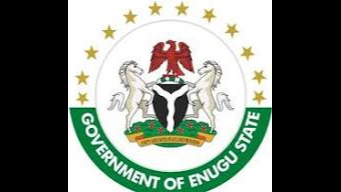tourism
World Tourism Day: FG reveals Plans for Tourism Sector
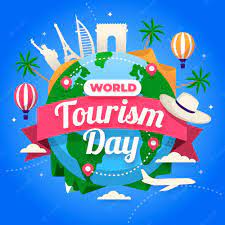
The Federal Government says it will partner with the states and the private sector, to develop the nation’s tourism to attract foreign tourists and investors.
The Minister of Information and Culture, Alhaji Lai Mohammed, disclosed this on Tuesday in Calabar at the unveiling of the theme of the 42nd edition of the World Tourism Day (WTD).
Newsmen report World Tourism Day is celebrated each year on Sept.
27 to foster awareness on tourism’s social, cultural, political and economic values.The 2022 celebration being hosted in Calabar, Cross River state capital. has the theme “Retinking Tourism’’.
Mohammed noted that tourism the world over was recognised as a key contributor to job creation, sustainable economic growth, environmental Conservation and poverty alleviation.
He said the sector also acted as a catalyst for social equality and inclusivity as it provided women, youth and rural communities the means to support themselves.
The minister said the Covid-19 pandemic and its unprecedented impact affected the tourism sector globally and made it to suffer a near collapse resulting in loss of jobs.
He said with the recovery from the pandemic, there was the critical need to transform the tourism industry as the global travel and tourism sector slowly recovered.
” I have no doubt that the time is right to begin this transformation and to rebuild the industry.
“The good news is that given the resilience of the tourism industry and its ability to recover quicker than other sectors, there is the need for more inclusive and sustainable recovery
approaches to be adopted,” he said.
In achieving this, the minister said the Federal Government would partner with the states and the private sector in the industry to transform the sector.
Mohammed expressed appreciation to the state Governor, Prof. Ben Ayade, for accepting to host the event.
He said it was a further demonstration of the governor’s zeal and enthusiasm for the development of tourism in the state as a tool for job creation, revenue generation and poverty alleviation.
The state Deputy Governor, Prof. Ivara Esu, who represented the governor at the ceremony, said the theme of the 2022 world Tourism Day was apt.
He said if tourism had been given adequate attention from both national and state levels it would have given the industry and the nation at large, a leap.
Esu, a former Minister of Culture and Tourism, said tourism should be accorded a stand alone in the ministry for more attention and development of the sector.
He thanked the Federal Government for finding the state worthy for the celebration of the 2022 Worlds Tourism Day.
In an official message delivered at the event, the United Nations World Tourism Organisation’s Secretary General, Mr Zurab Pololikashvilli, said the potential of tourism was enormous.
In the message read by Mr Fola Coker, the Director-General of the Nigeria Tourism Development Corporation, the UNWTO boss added that each member-state had a share responsibility to make sure the potentials were fully realised.
He called on tourism leaders and everyone in the base of the broad and diverse tourism pyramid to pause, reflect and rethink what to do to develop the sector.
Other officials at the event were, the Directors-General of Nigeria Institute of Hospitality and Tourism, Nura Kangiwa, National Commission for Museum and Monument – Prof Isa Tijani and National Gallery of Art, Ebeten Ivara.
Others are the D-G, National Broadcasting Commission Balarabe Ilela, the General Manager, National Theatre, Prof Sunday Ododo, Artistic Director and CEO National Dance Troupe, Ahmed Mohammed as well as Directors in the Ministry. (NAN)
NEWS
Hotel Employs 30 To Reduce Unemployment
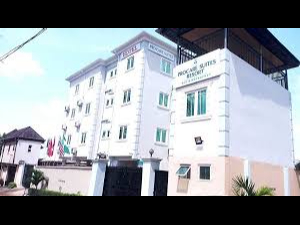
Procare Hotel and Suite, in Noforija, Epe Division, has employed no fewer than 30 new staff to tackle unemployment challenges amidst economic crisis.
Mr Segun Osifeko, Managing Director of the hotel, disclosed this in an interview in Eredo-Epe on Friday.
He said that this development had become necessary to support the government employment initiative for the citizens.
“This bold initiative underscores the hotel’s commitment to empowering local communities by creating meaningful job opportunities,” he said.
He said that the recruited staff were professionals in hospitality management, culinary arts, housekeepers, bakers, bar manager, front desk operations, and facility maintenance.
According to him, the recruitment drive was not only designed to strengthen service delivery but also to contribute to the socio-economic development of the host community.
He said that most of the new staff were indigenes of Epe Division and businesses must rise to the occasion in providing sustainable solutions to societal challenges.
“We recognise that unemployment remains one of the biggest issues in our society today.
“By expanding our workforce, we are not only enhancing our services but also providing livelihoods and restoring dignity to hardworking individuals,” he added.
He said that this effort aligns with broader national objectives to stimulate economic growth through the private sector.
Osifeko urged hospitality and tourism owners to emulate this kind of gesture to drive inclusive economic development.
He reaffirmed his commitment to sustaining this employment strategy and hinted at further expansion plans that could create even more job openings in the near future. (NAN)
NEWS
Bauchi Govt Earmarks N4.7bn for Yankari, Tourism Development
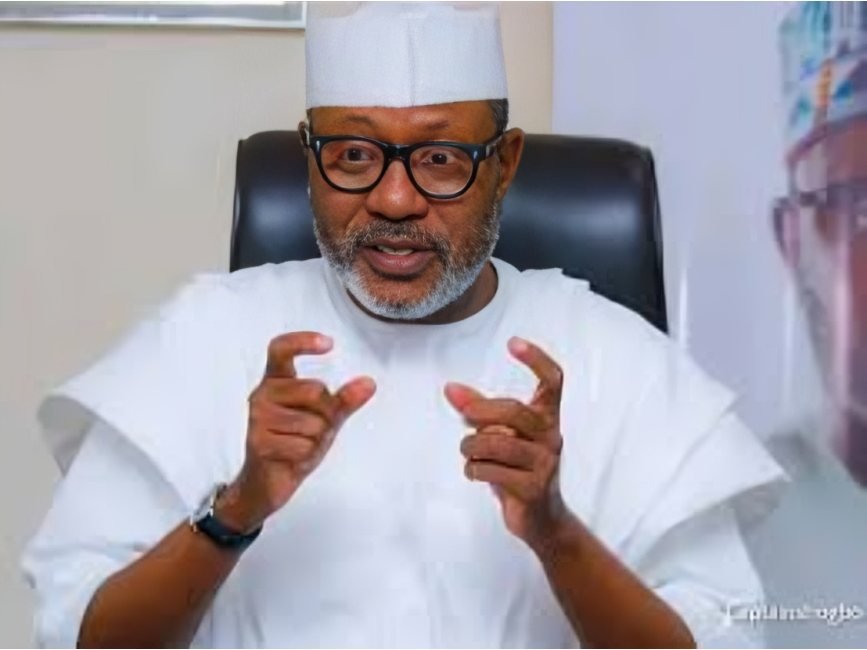
The Bauchi state government says it has earmarked N4.7 billion to reinvigorate Yankari Game Reserve and Sumu Wildlife Park, to encourage sustainable tourism development.
The government has allocated the fund in its 2025 budget, to fasttrack infrastructure development in the parks and other tourism sites in the state.
Mr Abdullahi Hassan, Commissioner for Tourism and Culture, said this in an interview with on Tuesday in Bauchi
He said the government was making huge investments to upgrade key tourism facilities, showcasing the state’s rich cultural heritage for pleasure seekers and researchers.
Hassan said that N2.7 billion has been set aside for the rehabilitation and upgrade of the Yankari Game Reserve and Resort.
He said the project included installation of solar power systems to ensure uninterrupted power supply while modern park facilities would be provided at the cost of N1 billion.
The commissioner said the government would expend N1 billion on the upgrade of the Sumu Wildlife Park to attract tourists and boost the state revenue base.
Hassan said that a 13.3 kilometre Kafin Madaki – Sumu Road, an administration block and earth dams would be constructed to support park operations and provide clean water for animals and human consumption.
“Sumu Park, known for its friendly giraffes, zebras and other non-threatening wildlife will see enhancement aimed at preserving its unique features.
“Plans are underway to introduce new species to the park, further enriching the visitor experience,” he said.
Also, Nasiru Yusuf, the General Manager, Bauchi State Tourism Board, reiterated the state government commitment to revitalise the wildlife reserves through an ambitious project tagged: “Wildlife Rejuvenation Programme.”
The programme, he said, is designed to herald habitat restoration and restock endangered species as well as strengthen conservation laws.
“We are focusing on rebuilding the wildlife populations, especially in the Yankari Game Reserve, which has long been a symbol of pride to Bauchi and Nigeria at large.
“Wildlife conservation is not just a government responsibility rather a shared duty for future generations,” he said.
According to Yusuf, the state government is partnering with international bodies, including the Czech Republic, and signed several Memorandums of Understandings (MoUs), to enhance development of key tourism sites.
Similarly, Steven Gassol, a former Head of Forestry Department, said the Bauchi state government was collaborating with the Wildlife Conservation Society (WCS), to innoculate over 12,000 cattle in agro pastoral communities surrounding the Yankari Game Reserve.
According to Cassole, the current state of wildlife in several protected areas across the country remains precarious, largely due to poaching, habitat loss and climate-related pressures.
He, however, said the federal and state governments have initiated a series of interventions to counter the threats.
He said the interventions included the expansion of protected reserves, stricter enforcement of anti poaching laws, and community-based conservation programmes aimed at empowering local communities to take active roles in preserving biodiversity.
This, he said, was being complemented by awareness creation activities to educate the people about the ecological and economic value of wildlife.
Cassole further lauded the synergy between regional bodies towards addressing cross border wildlife trafficking, which has been a major concern of the transnational conservation corridors.
“This collective action represents a promising shift towards sustainable conservation, continued synergy between the stakeholders will ensure long term success
FEATURES
Engaging Nollywood to Showcase Nigeria’s Tourism Endowment

By Joshua Olomu
All over the world film is more than an entertainment outlet. It is used as a tool for shaping opinions, driving national narratives to the larger world and projecting a nation’s cultures, economic, technological and other advantages.
Besides its entertainment value, one area where the motion picture is intentionally applied is as a tool for global marketing and advertisement of the tourism sector.
Films are unique platforms for promoting tourism, offering a blend of entertainment and destination marketing that can captivate audiences and inspire travel.
Some of the most admired and visited tourist attractions and destinations, such as the Eiffel Tower in Paris and the Great Wall of China attracted global attention through the power of the visual media.
The wonder of the screen can make tourists travel from around the world to visit the Statue of Liberty in New York and the Pyramids of Giza in Egypt.
Films are powerful tools for promoting tourism by bringing destinations to life, showcasing their unique attributes, and inspiring audiences to visit the real-world locations they have seen on screen.
Nigeria’s film industry, known as Nollywood, is globally recognised as the second largest film producer in the world, turning out over 2,500 movies yearly.
It is only surpassed by Bollywood of India, even though Nollywood does not rake in as much income annually as the others, it is renowned for its rich and unique storytelling attributes.
Before COVID-19 pandemic erupted Hollywood contributed $504 billion to the U.S. GDP. The figure represents at least 3.2 per cent of the goods and services portion of GDP.
Conversely, according to a research firm, PricewaterhouseCoopers, Nigeria’s film industry contributed only $660 million to Nigeria’s GDP in 2021.
One of those who think Nollywood can do better in terms of revenue generation for the country is the Vice-Chancellor, University of Abuja, Prof AbdulRasheed Na’Allah.
“Nollywood can turn around the fortunes of the Nigerian economy. The government must understand that now.
“It is in the interest of the government to know that film industries are multi-million-dollar ventures. They can create wealth.
“From all over the world, people are watching Nollywood. People are beginning to know Nigeria through Nollywood.
“Is it our music, film, cultural dance, or language? We are taking the world by surprise, and because it is going to Japan, China and America, it is creating foreign reserves for Nigeria”, he said.
He spoke at a three-day conference in Abuja, yesterday, in honour of visiting lecturer, Prof Onookome Okome of the Department of English and Film Studies, University of Alberta, Canada, the VC tasked the Federal Government to support Nollywood.
Just like the Nigerian music brand, Afrobeat, Nollywood products have evolved to become global brands that are known and accepted across the world.
In recent times, the industry has produced blockbusters that have been screened in international cinemas, nominated and screened at prestigious festivals such as the Toronto Film Festival, Berlin Film Festival, Cannes Film Festival, among others.
Therefore, it can be argued that Nollywood, as one of Nigeria’s best exports to the world, has not been adequately engaged in showcasing the nation’s rich tourism potential to attract inbound tourists.
Nigeria is known for its rich historical and cultural heritage, breath-taking landscapes and diverse wildlife, which position it as a potential choice destination for tourists seeking unique experiences and adventures.
The country is home to nature tourism, with a lot of natural attractions, including lush rainforest, Savannas, wetlands and unique flora and fauna, spread across its six geopolitical zones.
This diverse ecosystem offers interesting activities to tourists, such as bird-watching,photography,star-gazing,camping,hunting,fishing,hiking and games viewing.
However, with these amazing tourism attractions spread across the country, beside various cultural fiesta and celebrations, Nigeria is yet to be classified as a global tourism destination.
In the 2019 UNTWO World Tourism Ranking, Nigeria was not among the first 10 countries in Africa, with Egypt, Morocco and South Africa standing at first, second and third positions in that order.
Primarily, this ranking is based on the number of visitors and the income generated from the sector within the period.
Perhaps, inadequate packaging, promotion and effective marketing of the nation’s tourism attractions to the global market is the major drawback to the sector, and this is where Nollywood should be engaged by relevant authorities.
There is a need for synergy between industry players, and this is where the Nigerian Film Corporation (NFC) and the Nigerian Tourism Development Authority (NTDA) need to show political will, patriotism and commitment.
NFC has the mandate to establish a robust framework for fostering a thriving and enduring film industry and cinema culture in Nigeria, and thereby actively contributing to the socio-economic advancement of the nation.
One of the NFC’s cardinal functions is to produce films for domestic consumption and export, and this is what puts it in the best position to engage stakeholders in Nollywood.
NTDA is responsible for the planning, supervision, development and marketing of tourism in Nigeria, and it has the duty to encourage people living in Nigeria to take their holidays therein and people from abroad to visit Nigeria.
These agencies need to join hands to initiate a pilot project and engage relevant guilds in Nollywood including the Screen Writers Association of Nigeria, Association of Movie Producers and the Actors Guild of Nigeria.
At the ideation stage of the project, a script should be written with a storyline that set historical and cultural landmarks, parks and wildlife as locations for such a film.
Other tourist locations such as Yankari Game Reserves, Ikogosi warm spring, Erin Ijesha water fall, Ojukwu Bunker, among others should as well be captured.
The various cultural festivals such as Argungu Fishing Festival, Osun Osogbo Festival, the Calabar Carnival and others should be reflected in such projects.
The Federal Government, through its relevant ministries, should as well come up with an incentive mechanism for filmmakers whose projects tend to promote the nation’s tourism landscape.
These collaborations between filmmakers and tourism authorities will consequently lead to joint marketing efforts where film trailers can be paired with tourism advertisements, and locations can offer incentives for film crews to shoot there.
There is no doubt, if well engaged, Nollywood films will introduce audiences to locations they might not have known about, effectively serving as advertisements for these places.
Such films will also highlight the cultural aspects of a location, from food and festivals to traditions and architecture, and this cultural exposure can evoke viewers’ interest in experiencing these elements first hand.
As Nollywood films take a more dominant place on the global stage, using them to highlight the rich tourism attractions that abound in the country will create emotional connections with viewers.
This will attract both domestic and inbound tourists to locations which will ultimately bring sustainable tourism development and make the sector a major source of national revenue.
To be a vehicle for selling Nigeria’s tourism potential to the international community, Nollywood should take the positives from the country.
Then Speaker of House of Representatives, Femi Gbajabiamila, addressed this concern at Leadership Master Training for Nollywood Celebrities and Stakeholders training under the platform of Actors’ Guild of Nigeria (AGN).
“Beyond the questions of economics and profit, there is the issue of the critical role of Nollywood in influencing culture, defining national character, and promoting national identity.
“You also have a responsibility to tell the best stories of our beloved country’’, said Gbajabiamila, now Chief of Staff to President Bola Tinubu.
The Minister of Art, Culture and Creative Economy, Hannatu Musawa, acknowledges the enormity of the task but remains upbeat about what the industry can do.
“We are uniquely positioned in this great nation, endowed with an abundance of human capital and boundless possibilities.
“Our collective aim is singular, and it is bold: to position Nigeria as the world’s culture, creativity and entertainment capital“, she said.






